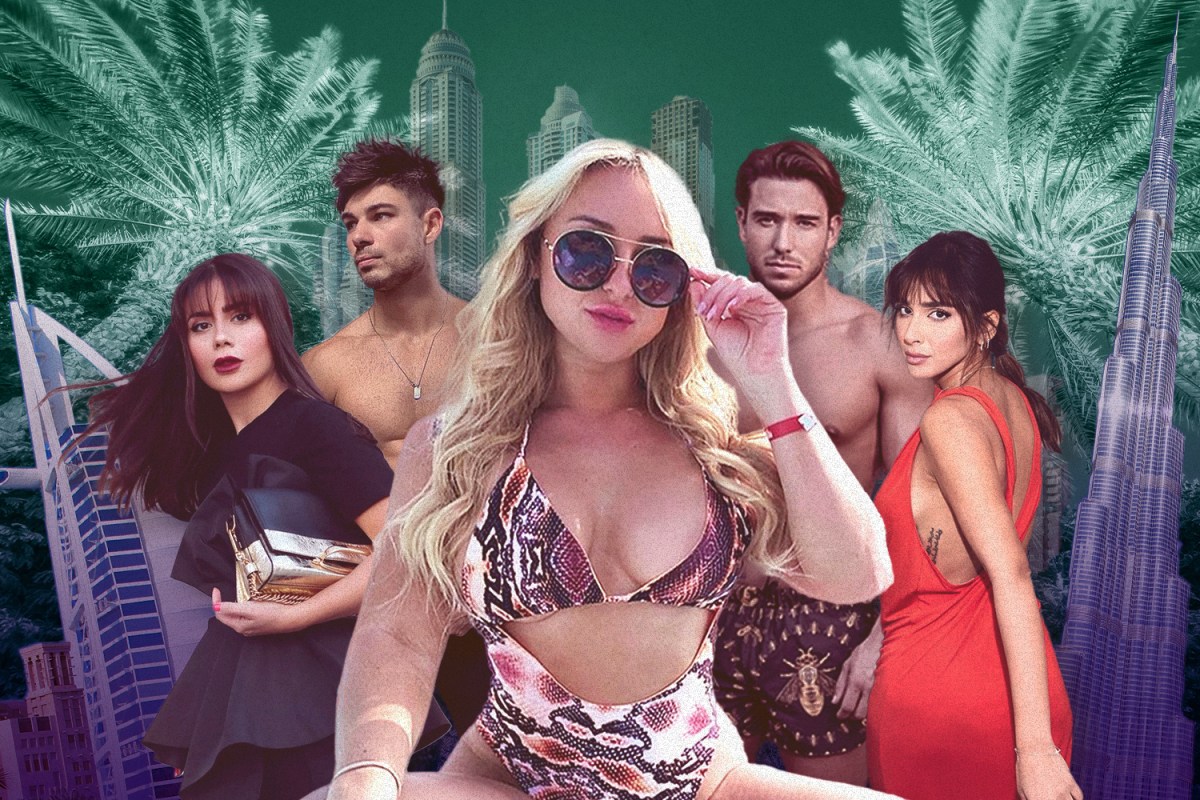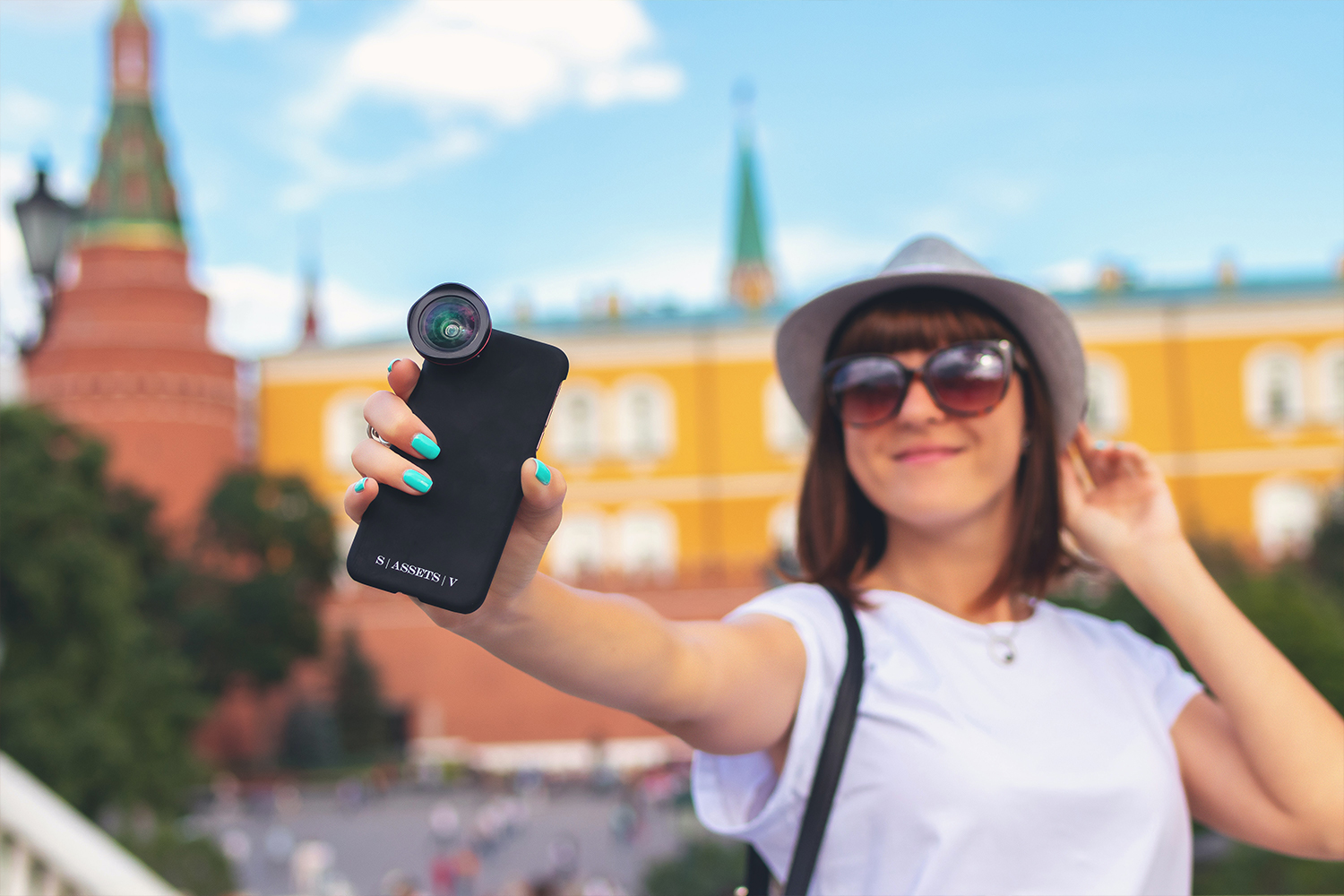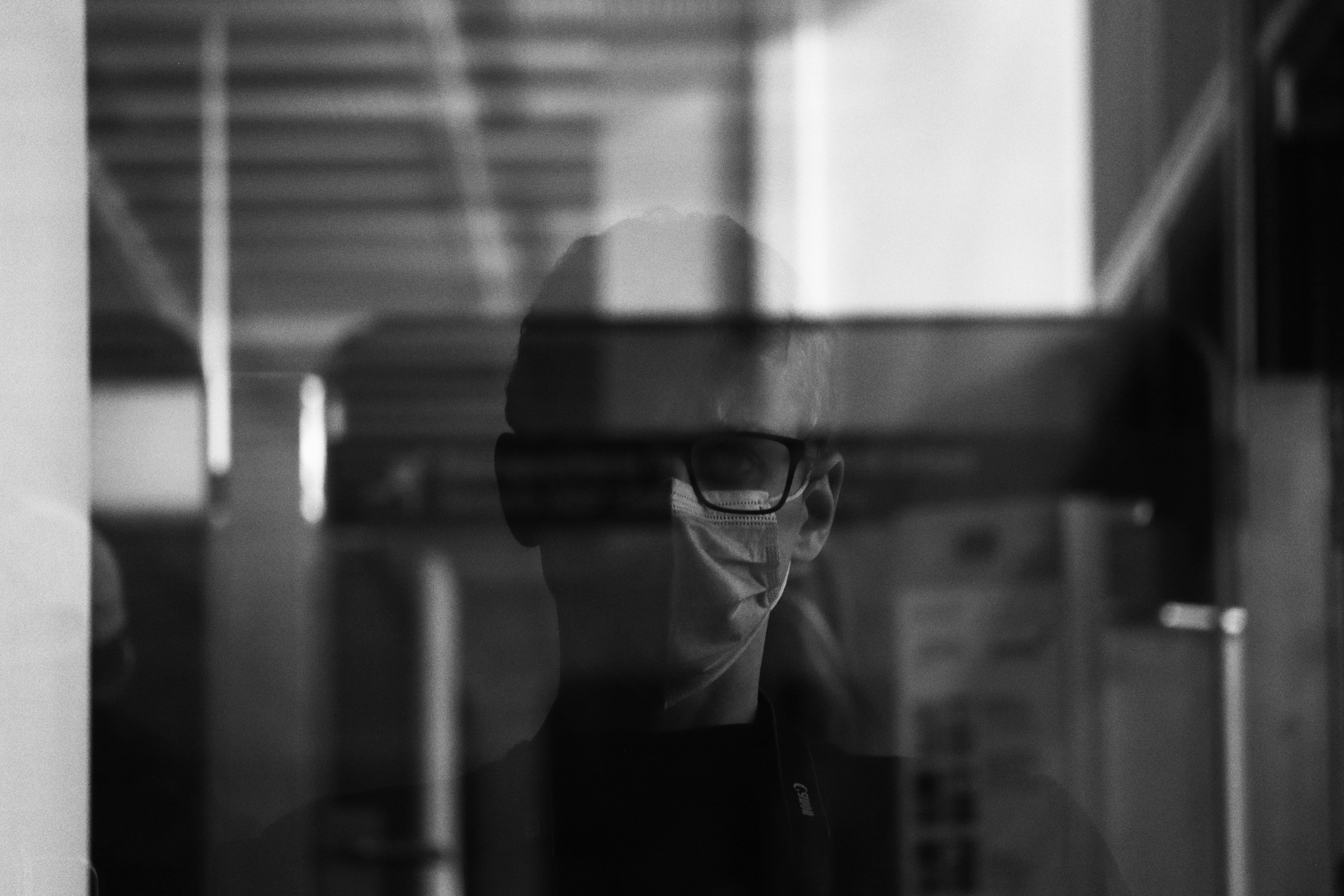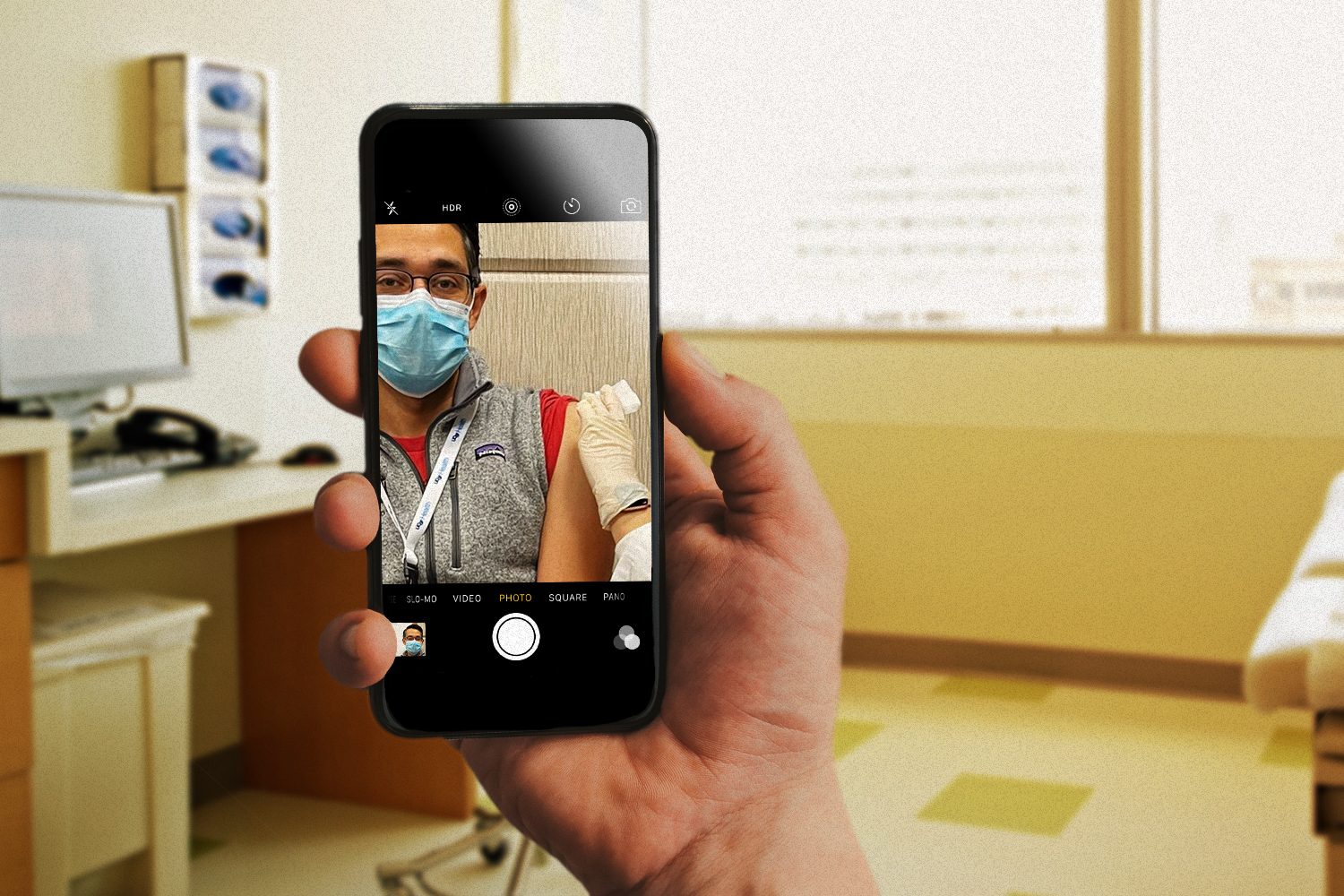Earlier this month, British fitness blogger Sheridan Mordew made an appearance on a London TV show called This Morning. She Skyped in from Dubai. When the host pressed her on whether her trip was truly “essential” — as in the technical, coronavirus-era kind of essential — Mordew said yes.
“I have to provide sunny content for my followers,” she purred while seated poolside. “I think what you’ve got to understand is my job. My job is to motivate people.”
After co-hosts Phillip Schofield and Holly Willoughby scolded her for such an insensitive response, no doubt thinking of the more than 100,000 people who have died in the UK since lockdown began last March, Mordew flippantly marched out a line that has become typical of social-media personalities when put under scrutiny: “In a world where you can be anything, be kind.”
Mordew is not alone. Dozens of British fashion bloggers, reality TV stars and models have flocked to the sunny, skyscraping environ of Dubai in recent months, prompting some critics to call it the COVID Casablanca. The majority of them are there on behalf of Dubai Tourism, who are looking to up the output from their #MyDubai hashtag and attract more tourists in a time when most medical experts are still campaigning for people to stay home indefinitely.
An Exception to the Rules
The Emirati billionaire’s playground has maintained lax social distancing laws through much of the pandemic, but COVID cases have tripled over the past two months as people arrived from abroad to party ahead of Christmas and for New Year’s Eve. The UK’s Home Secretary Priti Patel gave a speech two weeks ago criticizing these travelers, saying, “Going on holiday is not an exemption.” All Brits leaving the UK will now be interviewed about whether they’re going on a work trip or a vacation. The UK is in its third national lockdown and international travel is forbidden unless you have a legal document permitting you to do so. But the sanctions leave just enough room for people who subsist on sponsored and paid social media posts to exploit a loophole.
The Twittersphere is not having it. One commenter, @badwiggiess, wrote: “Influencers are using the excuse of working to go to Dubai but the past week, all they’ve posted is partying and dining? Make it make sense, babe.” A columnist for The Independent, meanwhile, said, “Those who conveniently fail to spot the difference between travelling for work and working while on holiday need a reality check.
The festivities in Dubai have been many and varied, if always attracting the same narrow subset of carefully coiffed and filtered pseudo-celebrities. There was a fashion party hosted by British fashion brand Alexander McQueen featuring a number of influencers as guests, while hotels hosted parties with internationally renowned DJs for New Year’s Eve.
The influencers claim their luxury “business trips” to Dubai are justified even amid the rising COVID cases. In mid-January, numbers spiking, the city’s hotels were still hosting wild parties with Champagne, live music and dancing. It was all part of a marketing push to make it seem like an oasis away from a world under lockdown, and there’s no doubting its success: Dubai hotels reported 71% occupancy rates in December, down just 10% year over year.
“It’s awful that there are influencers partying around the globe like we’re not in the middle of a pandemic, but it’s not surprising,” said Brittany Hennessy, the head of influencer development at Carbon August. “Many creators, especially those with a travel niche, have pivoted to content they can shoot at home. It’s a difficult time for many influencers, but there are numerous ways to create content and generate revenue without endangering anyone.”
Though the UAE does not release public health statistics, the country, with a population of nine million, has had at least 256,000 COVID cases and 751 deaths. According to one John Hopkins University report, the UAE saw a 75% rise in COVID cases from December 2020 to January 2021. The tourism department did close live entertainment at hotels and restaurants on January 21, though weddings up to 200 people are still permitted.
According to Dubai’s government office, they have administered more than two million free vaccines, and have “one of the world’s lowest COVID-19 death rates of 0.3% by virtue of [their] highly advanced and well-staffed healthcare infrastructure.” Still, some believe Dubai’s never-ending party will soon be forced into an indefinite hiatus as case numbers swell, sparking fears of an incoming lockdown. The UAE’s Ministry of Health has even placed a public ad for ICU nurses in Dubai.
On the Question of “Influence”
Admittedly, the “influencers” flooding into Dubai are not household names to most. They comprise reality TV stars from shows like Love Island, Geordie Shore and The Only Way Is Essex, with stars like Georgia Harrison, Josh Ritchie and Yazmin Oukhellou all having posted snaps on social media.
Despite the intense criticism they’ve faced as the UK remains in lockdown, many are unapologetic. As one influencer, Henry Wade, wrote on Instagram on January 3: “It may be easy for me to say this whilst I live a carefree lifestyle currently in Dubai especially as the UK enters another lockdown, but if it’s anything I learned from the first lockdown it’s you have to see the best in a bad situation.”
None of the influencers who were contacted responded for comment.
Wade, a 27-year-old lifestyle blogger, told his followers, “It’s easier said than done but if you can leave a national lockdown even 1% better than when you entered, you’ll thank yourself you did that bit extra.”
Jane Harris, a post-doctoral researcher in public health at Liverpool John Moores University, is aware of the scathing criticism that influencers have encountered. But are they a legitimate public health risk? In her academic research, she surveyed more than 1,000 British youngsters from ages 13 to 18 and learned that influencers are a source of health information, “but a passive one.” Young people, who consume much of their news through social media, are not fools. “They encountered this health information during their everyday social media activity, rather than actively seeking out their advice,” she says.
Harris goes on to explain that if anything, she expects influencers to lose followers, engagement and clout due to their Dubai trips. “The relatability between influencers and their audience is a fragile one, which is dependent on influencers’ perceived sincerity,” says Harris. “While most young people in our research were aware that sponsorship and advertisements were influencers’ main source of revenue, when it came to health content, inconsistencies in influencers behaviors and clear prioritization of profits over their audience could lead to disengagement.”
It isn’t just Dubai Tourism inviting crews of young, attractive social media stars to help them pretend like everything is hunky-dory in the desert (though they’re certainly the easiest to identify, with the #VisitDubai and #MyDubai hashtags uncovering a trove of putatively sponsored posts). Chain hotels like the Radisson Blu and Park Hyatt also appear to be doing their part, with the former hawking deals on Instagram for roughly $72 a night while featuring photos of bloggers for content, and both properties serving as backdrops for Russian influencer Anton Sokolov’s recent selfie shoots.
When prompted, most of these hotels declined to comment, though one PR agency disclosed in confidence that hotel-booking apps and travel agencies are currently working on a rollout of deals with influencers, but could not share details. The Dubai Media Office also declined to comment on hotel capacity.
Of course, if the hotels are, as reported, at or near 70% capacity, the stars of Love Island are hardly the only irresponsible parties traipsing around Dubai right now. Which begs the question: Are influencers just a very visible and obvious punching bag? Sara Tasker, the author of the bestselling Instagram guide, Hashtag Authentic, suggests they might be. “What this mostly boils down to, I suspect, is the low opinion the British public still holds of influencing as a profession, in general,” she says. “Mostly young, mostly female, often stereotypically attractive influencers are a group easily written off as idiots exploiting loopholes to catch a few weeks in the sun.”
Tasker adds: “But for most influencers, sponsored content is their full-time job. As in many industries, marketing budgets have been slashed during COVID, and as sole traders or self-employed individuals, influencers aren’t eligible for any UK government furlough or financial relief. it seems understandable, then, that with bills to pay and food to buy, that a lucrative deal with a foreign tourist board might well be necessary work for some of these young people to take on.”
She notes the controversy of influencing writ large: though doing it well requires real skills (photography, styling, growing and maintaining an audience of thousands), it still isn’t viewed as “real work.” “We’re British!” says Tasker. “We’re conditioned to think that work has to be something endured under unpleasant, almost Dickensian conditions. If you’re getting paid to do something with elements of fun or that you enjoy then it isn’t ‘real work.’ That’s why the influencers are a target for people’s anger, while the briefcase-carrying businessman jetting off to Europe for wine and business meetings will continue to get a free pass.”
Many influencers are stranded abroad, unable to return home. OnlyFans model Honey Evans from Leeds wrote on Twitter that she’s stuck in Dubai as flights to the UK are banned: “Flights from Dubai to the UK are banned. Guess I have no choice but to stay out here. Shame.”
Meanwhile, Edinburgh lottery-winning influencer Jane Park has made Dubai her home since the UAE was added to the UK’s red list on January 28. She told her Instagram followers to “stop with the Dubai abuse,” explaining: “You don’t know how someone is feeling. It’s the same ones that preach about mental health all over Insta as well.”
Dozens of Danish influencers are also caught in a bind, as Denmark recently banned all incoming flights from the UAE. They are essentially trapped abroad, the government in some cases denying their pleas to return home.
Of course, not all social-media personalities are pro-COVID travel. Some reality stars say that this crop of partiers is giving the rest of the profession a bad name. Gogglebox star Tom Malone has decried the influencers who are promoting travel in Dubai, calling it “disgusting.”
“Personally, my opinion on the matter, is that unless there is a campaign or job that requires you to be in Dubai for the content, with no possibility to get that same content at home, then influencers should stay home and work from there, like everybody else,” he says. “I’m sure there are a few that are genuinely there for work, and that’s OK. But I do think it’s insensitive, as it doesn’t reflect the mood of the nation.”
And the former Love Island star Olivia Attwood called out her colleagues who are traveling on Instagram, calling them “tone deaf.”Attwood said the influencers are “giving a whole load of people a bad reputation.” She added: “I don’t even blame you, just know when to shut up.”
This article was featured in the InsideHook newsletter. Sign up now.
























